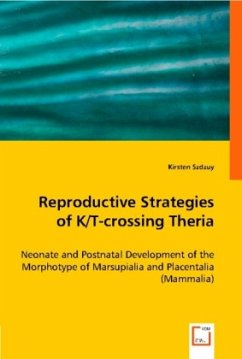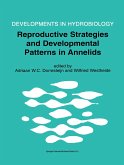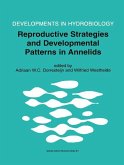This PhD-thesis deals with the possible reasons for the evolutionary differentiation between marsupial and placental mammals after the K/T-event. One explanation could be their different reproductive patterns. Marsupialia bear virtually embryonic young after a brief gestation period. In contrast, many placental mammals bear anatomically advanced, highly precocial young after a relatively long gestation period. A stable metabolism and thermoregulatory abilities of the young are considered to offer a large adaptive advantage in a changing environment, how it is presumed for the K/T-boundary. Therefore this study determines the developmental stage and the respiratory efficiency of the lungs of marsupial and placental young. The study focused on five placental and two marsupial species which represent major mammalian orders. Histological, ultrastructural and calorimetric investigations were carried out in an integrated study and from the results morphotype reconstructions of the marsupial and placental neonates were derived. This book is addressed to scientists and students working in the field of morphology or evolutionary biology.
Bitte wählen Sie Ihr Anliegen aus.
Rechnungen
Retourenschein anfordern
Bestellstatus
Storno








